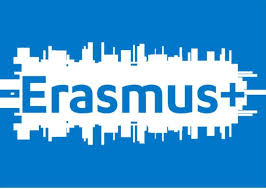Uncategorized
ERASMUS+
The Erasmus Charter for Higher Education – ECHE – provides the general framework for the European cooperation activities a higher education institution may carry out within the Erasmus+ programme 2014-2020.
ERASMUS+ at the J. Selye University
J. Selye University’s Erasmus Policy Statement was elaborated in 2013 as part of the application for our Erasmus Charter 224223-EPP-1-2014-1-SK-EPPKA3-ECHE.
Our Erasmus ID code: SK KOMARNO01
Participant Identification Code (PIC) – it is a unique identification number of the institution which is involved in the Erasmus+ as either the applicant or partner in the project.
J. Selye University Participant Identification Code (PIC): 968774406

Erasmus+ is the new EU programme for education, training youth and sport that replaced the Lifelong Learning Programme (Leonardo, Comenius, Grundtvig, Erasmus and Jean Monnet actions), Youth in Action and five other international programmes starting from 2014. This new programme focuses on formal and informal learning across EU borders to improve the skills and employability of students, educators and workers. It reflects the priorities of the Europe 2020 strategy and its flagship initiatives.
The possibilities within the Erasmus+ Programme have been divided into three key actions:
Key Action 1 – Learning mobility of individuals – promotes learning opportunities for individuals, within the EU and beyond, including: study and training, traineeships, teaching and professional development and non-formal youth activities such as volunteering and the establishment of Erasmus Mundus Joint Master Degrees.
There are sub actions:
– Student mobility for Traineeships
– Staff mobility for teaching and staff mobility for training
This Key Action is a mix of decentralised projects run by National Agencies and centralised activities managed by the European Commission’s Executive Agency
Key Action 2 – Cooperation for innovation and the exchange of good practices.
The actions under Key Action 2 make it possible for organisations from different participating countries to work together, to develop, share and transfer best practices and innovative approaches in the fields of education, training and youth.
Within the KA 2 Strategic Partnerships in the field of Education, Training and Youth in the field of youth provide an opportunity for implementing projects leading to overall professionalization and development of youth work practices in Europe.
This Key Action 2 is a mix of decentralised projects (Strategic partnerships in the field of Education, Training and Youth) run by National Agencies and centralised activities Knowledge and Sector Skills Alliances;
Capacity Building in the field of youth/higher education supporting cooperation with Partner Countries managed by the European Commission’s Executive Agency.
Key action 3 – supports for policy reform in Member States and cooperation with non-EU countries, with a focus on strengthening the evidence-base for policy making and exchange of good practices. Support will include the implementation of EU transparency tools, cross-country studies and support for specific policy agendas.
This Key Action 3 mainly consists of projects run by the European Commission’s Executive Agency, apart from Youth Structured Dialogue which is managed by the National Agencies.
For more information, go to the European Commission’s Erasmus+ website.



You must be logged in to post a comment Login